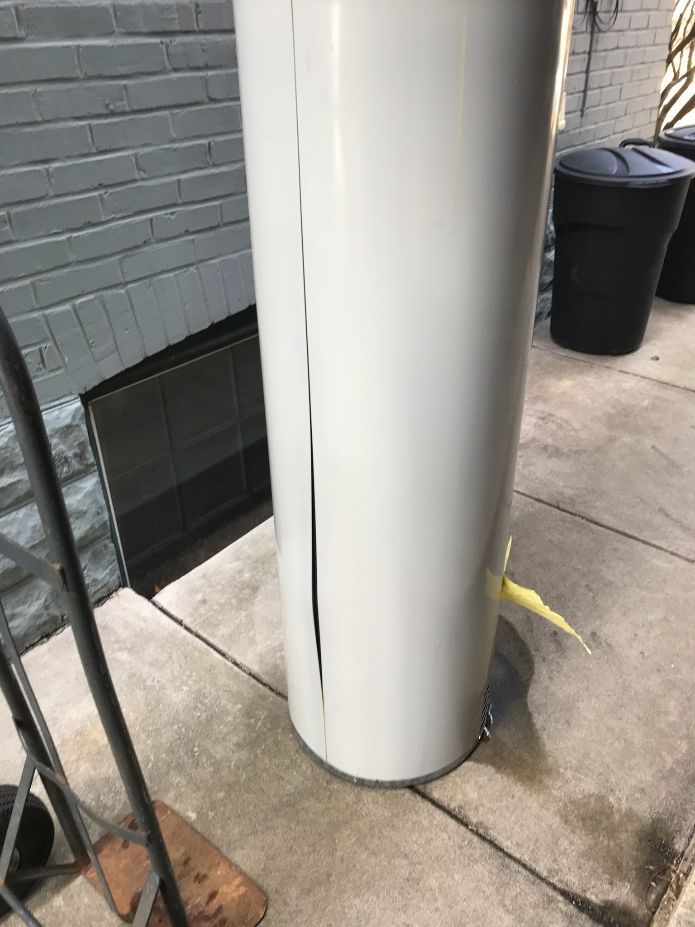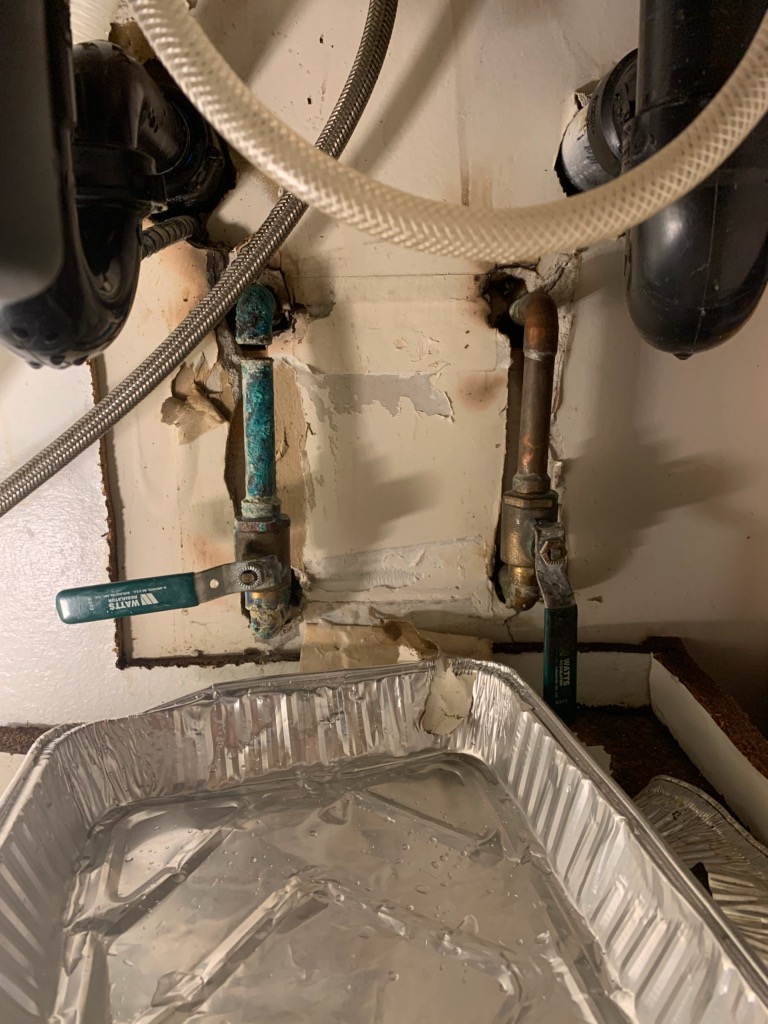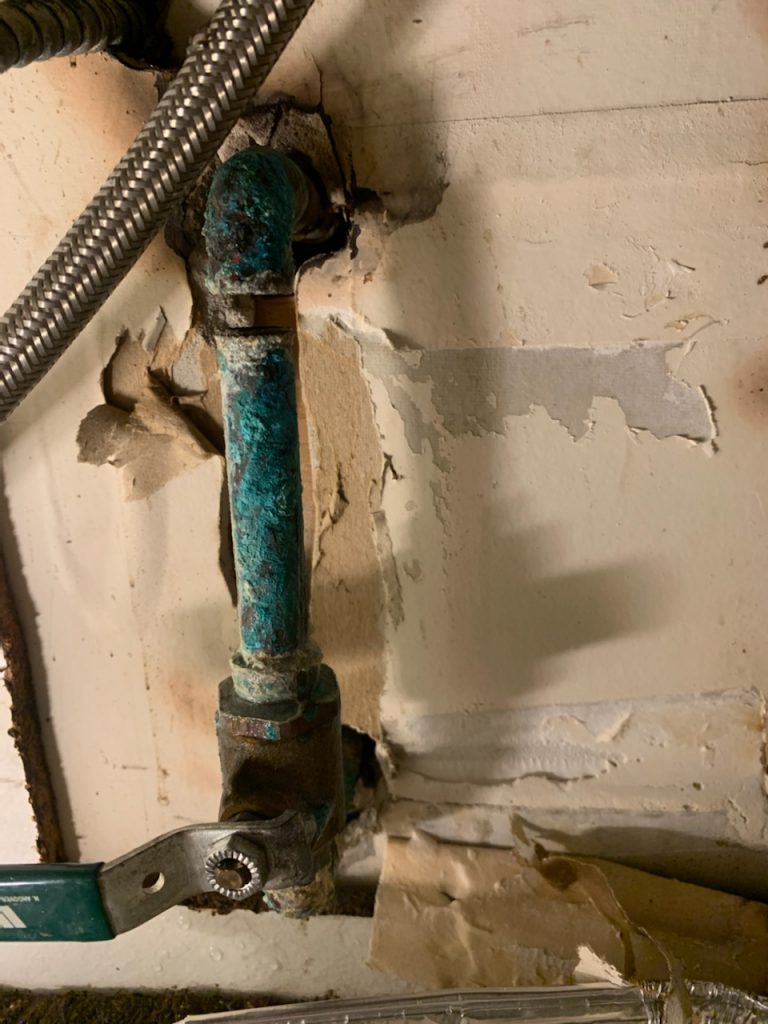Thermal expansion is not limited to storage or tank type water heaters. Tankless water heaters (TWH) can cause thermal expansion too. I previously touched on the consequences of not controlling thermal expansion, and this is an update to that post.
Recently on a commercial backflow preventer installation job, the customer asked me, “Do I need a thermal expansion tank? Because I have a tankless water heater.” I quickly replied, “Yes, you do.” The customer then said, “But the plumbing inspector told me that thermal expansion tanks aren’t necessary by code for tankless water heaters.”
This is a common misconception, when it’s not required that you don’t need it. It’s basic physics. “When water is heated, it expands.” I told him, “Since you have a backflow preventer installed, your potable water piping system becomes closed.” I also explained, “When a tankless water heater cycles off, it goes through a cool-down mode. In the cool-down mode, the heat exchanger transmits heat, which eventually expands into the cold water supply and causes thermal expansion.”
It seemed he just couldn’t get past “Not required by code” in his mind. I realized that my conversation wasn’t going anywhere so I had to do some research.
Researching the Plumbing Code
After that job, I followed up researching the relevant section of the plumbing code. I examined what else can cause thermal expansion in a potable water system. The IPC plumbing code (607.3) states that a thermal expansion tank only is necessary when storage water heating equipment combined with either a backflow preventer or a check valve has been installed after the water meter. This code explanation seems to be vague because there is no reference to tankless water heaters, only storage.
Cracks in the plumbing code
So, in other words, the plumbing code is saying that a tankless water heater only heats water on demand. Therefore a TWH does not cause thermal expansion. I disagree with this conclusion. And I’m not alone. A lot of other plumbing professionals and jurisdictions do too. It doesn’t matter whether a tankless water heater’s thermal expansion amount is small. In a closed potable water system, any amount of expansion is dangerous and eventually wears on the system, causing failure.
Despite the Allegheny plumbing code’s conclusion, the Tankless Water Heater manufacturer specifically address the need to control thermal expansion. For example, Rinnai tankless water heaters accurately advise on page 14 of their installation manual for their models RV53i ………………REU-VB2020FFU-US RV53e ……………..REU-VAM1620W-US to provide means for thermal expansion in a closed potable water system.
If a water heater is installed in a closed water supply system, such as one having a backflow preventer in the cold water supply line, means shall be provided to control thermal expansion. Contact the water supplier or local plumbing inspector on how to control thermal expansion.
Rinnai Installation Manual
You figure it out! The IPC plumbing code fails to recognize that storage water heating equipment isn’t the only heating source that creates thermal expansion. The uniform plumbing code touches base on this matter in their plumbing code thoroughly. Although in Pittsburgh, plumbers are not under the uniform plumbing code. It’s not illegal to install a thermal expansion tank in a closed potable water system regardless of the type of water heater used. The plumbing inspector is only concerned with the minimum. It’s better to be safe than sorry later I say.
Other plumbing code jurisdictions
The Uniform Plumbing Code (UPC) 608.3 explains that a water piping system that has a check valve or backflow preventer or another normally closed device that prevents dissipation of building pressure back into the water main shall have an appropriately approved sized expansion tank. Any other similar device with the same function is also permitted to control thermal expansion after the check valve or backflow preventer. Minnesota’s plumbing code 608.2 and 608.3 is a jurisdiction that agrees on thermal expansion regardless of what type of water heater heats the potable water.
Causes of thermal expansion
There are a number of ways that water can be heated inside a closed potable water piping system, causing thermal expansion:
- hot water dispenser
- shower steam generator
- room temperature
- direct sun light
- hydronic heating pipe radiation
- forced air ducts
- tankless water heaters
- tank water heater
Any of the above heat sources will cause thermal expansion. Constant sunlight that hits a water pipe or the side of an uninsulated home for an extended period will increase the pressure of the water system if no one is occupying the house to use the plumbing. A steam generator used to make steam in a shower expands into the cold water pipes too. A good rule of thumb is whenever there is a potential of heat source in a closed system, thermal expansion steps are required.
Thermal expansion aftereffects
Here are some past job experiences that I verified up close, the aftereffects of thermal expansion when it’s not tamed. Luckily there were no injuries or property damage with the water heater, but the struck water pipe did release some hot water that caused a little water damage.



Thermal expansion failure
Picture bending a coat hanger, after so many bends the wire fatigues and breaks apart, right? It’s just a matter of time. The same thing occurs in a water system. The water heats up expands, and either a pipe, a fitting, or the water heater bursts, whatever is the weakest point. So why would you have a tankless water heater installed in a closed water system without proper thermal expansion?
You’re just trying to sell me something
Frankly, I would make more on a catastrophic failure. With the repair to the system and clean up and repair of water damage, the cost can be in the thousands. So it would be more beneficial to me to just let you do the minimum and keep my mouth shut, waiting for the inevitable. But I’d rather save you the money and stress when I can.
TWH cause thermal expansion
Bottom line, a tankless water heater (TWH) does create thermal expansion. The Universal Plumbing Code and manufacturers recognize it, and I do too because I’ve verified the facts. I’ve researched the codes. I’ve spoken with hydronic heating experts and tankless water heater manufacturer reps. So if you’re not sure about whether you need a thermal expansion tank for your water system contact Vince to schedule a thorough thermal expansion test.

